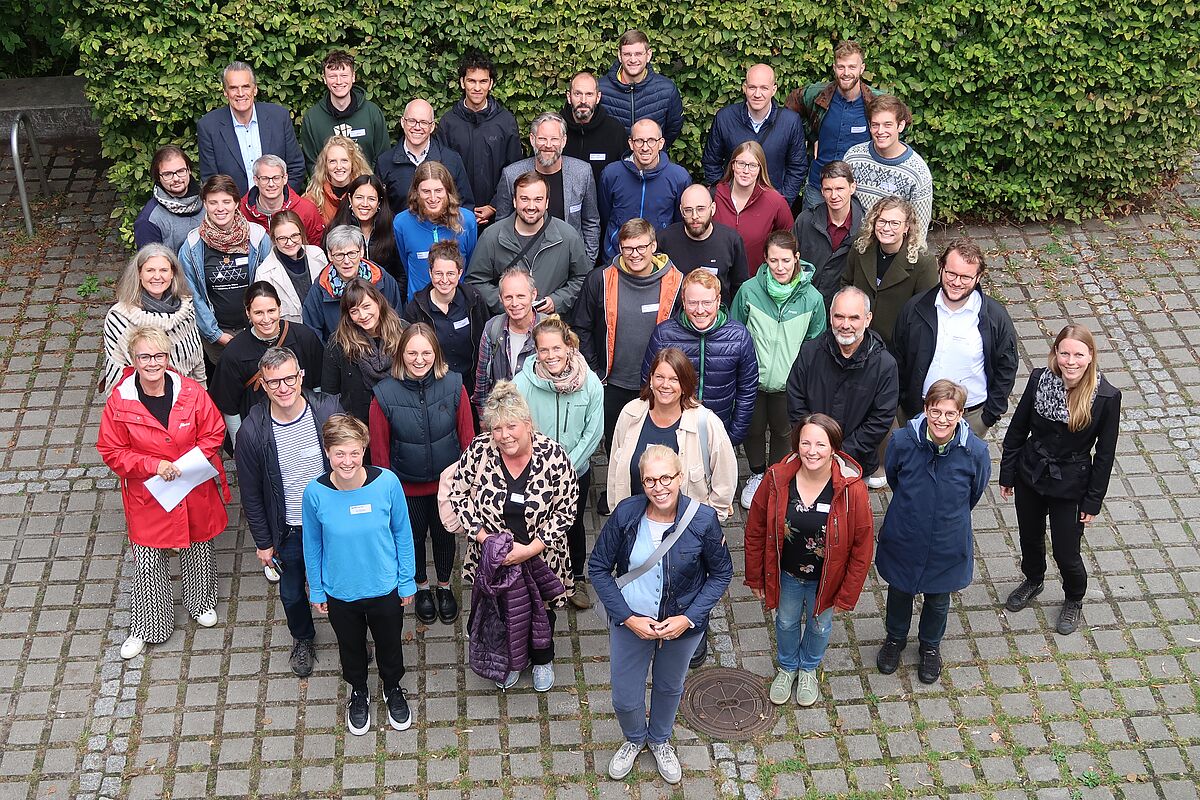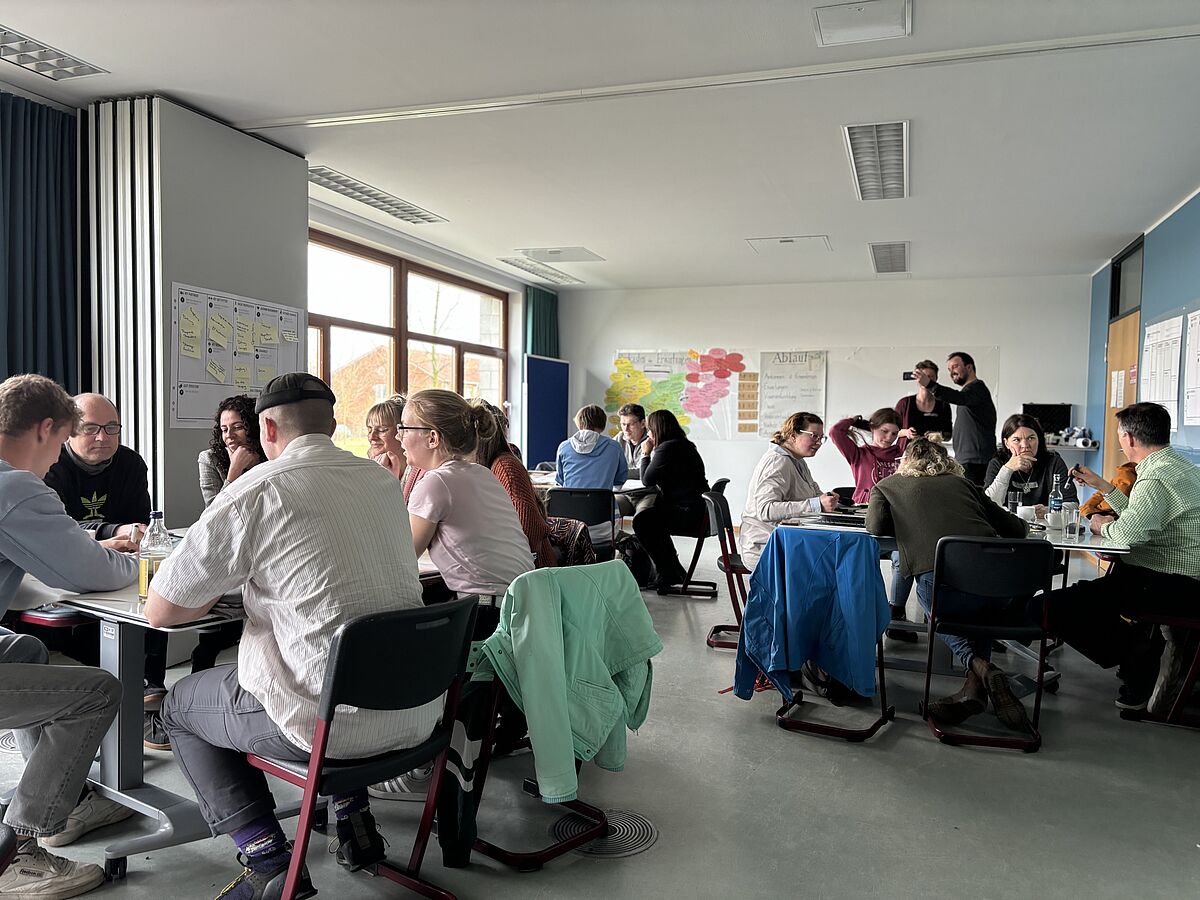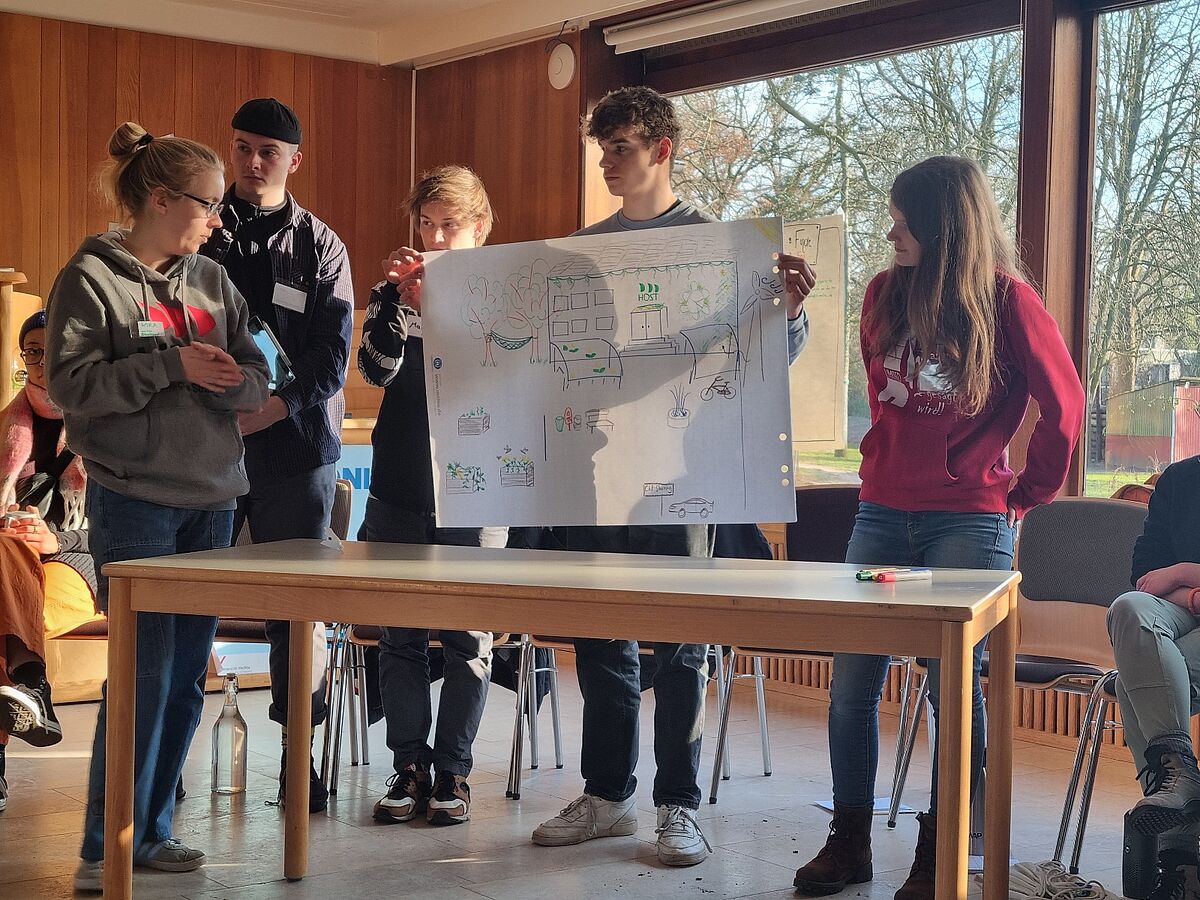WG "Sustainable Campus"
In October 2023, a "Sustainable Campus" working group (WG) was established at the university, which also functions as Rectorate Commission.
The working group brings together all relevant status groups at our university, including the university management (Rector), administration, students, professors and academic and non-academic staff from all three faculties.
The self-imposed goals of the working group include taking stock of the "sustainable campus", developing a comprehensive sustainability plan with clear goals and measures, monitoring the achievement of goals, raising awareness of sustainability issues among the university community, collaborating with local communities and companies on joint sustainability projects and participating in regional and national sustainability initiatives.
After jointly prioritising initial areas of action, smaller teams have been formed within the WG to focus on different key areas of sustainability efforts on campus:
- Education & Awareness
- Infrastructure & Social Affairs
- Mobility
- Energy
- Internal organisation
The working group, existing teams and the possibility of forming new teams are open to all university members who would like to get involved, regardless of their specialism, area of work, experience or previous knowledge. Everyone is welcome to join the WG or participate in one of the upcoming meetings or events.
You can find more information on this page.
Coordination & Communication
Wencke Wendlandt
research assistant
nachhaltigkeit@hochschule-stralsund.de
Projekt
Future Forum Climate-Friendly Universities
In November 2023, Stralsund University of Applied Sciences successfully applied to participate in the "Future Forum for Climate-Friendly Universities" project under the leadership of the working group.

In the joint project funded by the Federal Ministry for Economic Affairs and Climate Protection under the leadership of netzwerk n e.V. and in cooperation with the University of Vechta and the Eberswalde University for Sustainable Development (HNEE), 15 small and medium-sized universities are becoming pioneers in climate protection as part of a whole-institution approach.
In the short term, the universities are to reduce their greenhouse gas emissions by at least 10% and implement climate protection concepts in the long term.
The involvement of all status groups at the universities is key, with students playing a particularly important role. The focus is on empowering students, with the clear aim of initiating a sustainable transformation that is driven by the students themselves.
Throughout the project period until July 2026, the universities will be supported and advised by external teams of experts to ensure the success of the project.
Next event
Past events
Interim project conference
on 13 September 2024
in Eberswalde
The conference provided a framework for exchange and networking, getting to know the HNEE campus and sustainability management, inputs and table sessions. In the table sessions, it was possible to exchange ideas on topics such as the development of measures, student participation, greenhouse gas (GHG) accounting and governance, to learn from other universities and stakeholders and to pass on experiences gained.
Kick-off meeting at HOST
on 19 March 2024
As part of the "Future Forum Climate-Friendly Universities" project, the event at HOST was led and organised by "netzwerk n". Representatives of all status groups at the university were present. The event provided an opportunity for everyone involved to get to know each other, exchange ideas and lay the foundations for successful collaboration. The participants were informed about the goals and planned activities of the project and then had the opportunity to get actively involved and share their visions for a sustainable future for Stralsund University of Applied Sciences.
Empowerment training for students
from 19 to 21 January 2024
in Hanover
The kick-off for student involvement in the project. Together with students from other participating universities, they learnt about the role of universities in the social transformation process and were encouraged and empowered to actively participate in decision-making processes. Together, they developed a systemic perspective and an understanding of the logic, potential and limits of change within the university.





